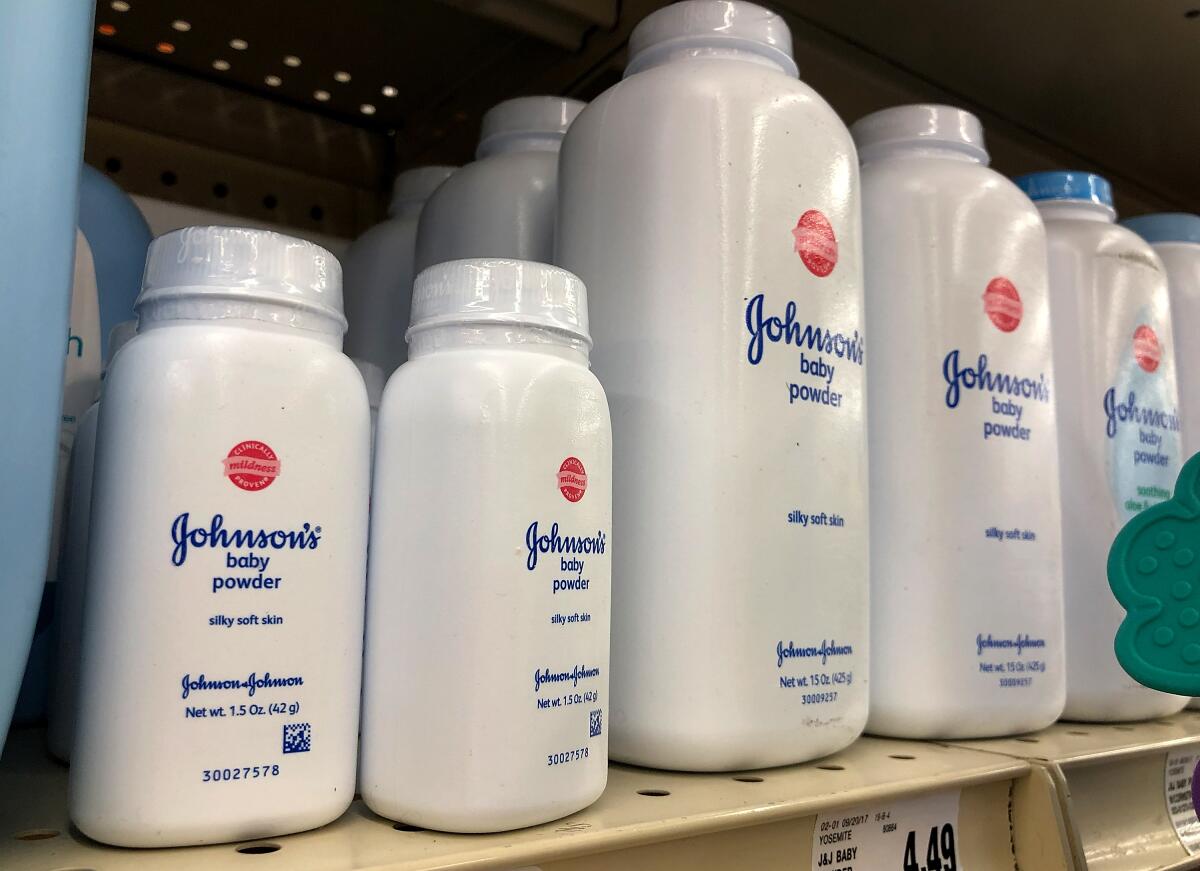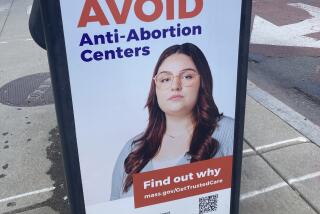J&J faces lawsuit by Black women over baby powder and cancer

- Share via
Johnson & Johnson was sued on allegations of marketing baby powder to Black women even though it knew the product could cause ovarian cancer.
The National Council of Negro Women filed the lawsuit Tuesday against the world’s largest maker of healthcare products for going after Black women through “deceptive marketing” that included handing out free samples of its talc-based powders at beauty parlors and running advertising campaigns.
“Internal documents demonstrate J&J targeted those advertisements to Black women, knowing that Black women were more likely to use the powder products and to use them regularly,” according to the complaint, which seeks a finding of liability, warnings and a medical monitoring program funded by the company. “We now know what J&J knew long before it pulled its talc-based products from the market — that J&J’s powder products can cause ovarian cancer.”
Women across the country have said J&J’s talc-based powders caused their cancers, and the company faces more than 25,000 lawsuits over its products. It pulled its baby powder from U.S. and Canadian markets last year, and this year set aside $4 billion to deal with talc verdicts and settlements.
The allegations that Johnson & Johnson targeted communities of color aren’t new. Internal documents surfaced earlier in the litigation, which has spanned more than seven years, showing the company’s marketing plans for Black and Latino women.
“The accusations being made against our company are false, and the idea that we would purposefully and systematically target a community with bad intentions is unreasonable and absurd,” J&J spokeswoman Kim Montagnino said in a statement.
Lawyers for the Black women’s group, which filed its suit in state court in New Jersey, said some of its members have developed cancer they link to daily use of baby powder and want to hold J&J accountable. They point to a 1992 company memo recommending J&J look into “ethnic (African-American, Hispanic) opportunities” to expand the baby powder franchise.
More than a decade later, J&J set up a task force devoted to improving sales of Shower to Shower, which featured a mixture of talc and cornstarch. J&J sold that product to Valeant Pharmaceuticals in 2012.
“African American consumers in particular will be a good target with more of an emotional feeling and talk about reunions among friends, etc., team up with Ebony Magazine,” a 2002 memo from the task force concluded. The task force suggested setting up promotions in churches, beauty salons and barbershops and hiring a recording star like Patti LaBelle or Aretha Franklin as a celebrity endorser. Neither became a spokeswoman for the brand.
The women’s group is asking a judge to hold J&J liable for misleading talc marketing and force it to warn Black women they may be “at higher risk of developing ovarian cancer in the future” through the use of talc-based powders over the years. The group also wants the company to pay for a medical monitoring program focused on ovarian cancer in communities of color.
More to Read
Inside the business of entertainment
The Wide Shot brings you news, analysis and insights on everything from streaming wars to production — and what it all means for the future.
You may occasionally receive promotional content from the Los Angeles Times.








